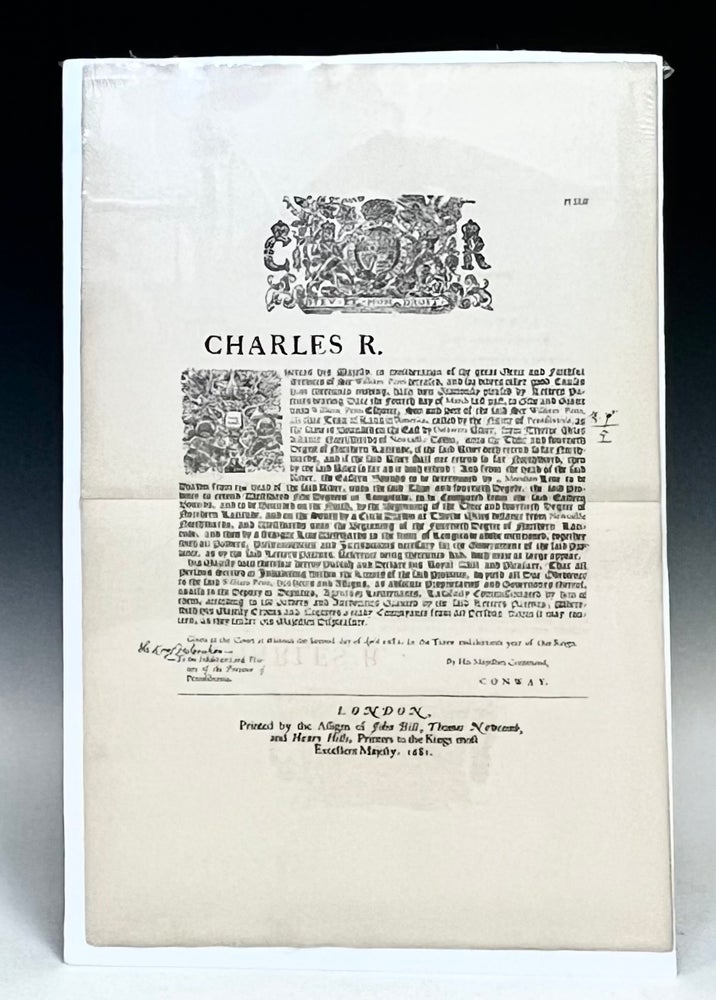
1859 Facsimile printing of Charles II Grant of Pennsylvania to William Penn
1859. Very Good. Item #16019
A large 1859 facsimile printing of the grant of Pennsylvania by King Charles II of great Britain to William Penn. Charles granted the large tract to settle a debt to Penn's father.
This historic piece is dated 1681and features the King's coat of arms.
"In 1677, Penn's chance came, as a group of prominent Quakers, among them Penn, received the colonial province of West New Jersey (half of the current state of New Jersey). That same year, two hundred settlers from the towns of Chorleywood and Rickmansworth in Hertfordshire and other towns in nearby Buckinghamshire arrived, and founded the town of Burlington. Penn, who was involved in the project but himself remained in England, drafted a charter of liberties for the settlement. He guaranteed free and fair trial by jury, freedom of religion, freedom from unjust imprisonment and free elections.
"King Charles II of England had a large loan with Penn's father, after whose death, King Charles settled by granting Penn a large area west and south of New Jersey on March 4, 1681. Penn called the area Sylvania (Latin for woods), which Charles changed to Pennsylvania in honor of the elder Penn. Perhaps the king was glad to have a place where religious and political outsiders (like the Quakers, or the Whigs, who wanted more influence for the people's representatives) could have their own place, far away from England. One of the first counties of Pennsylvania was called Bucks County, named after Buckinghamshire (Bucks) in England, where the Penn's family seat was, and from whence many of the first settlers came.
"Although Penn's authority over the colony was officially subject only to that of the king, through his Frame of Government he implemented a democratic system with full freedom of religion, fair trials, elected representatives of the people in power, and a separation of powers — again ideas that would later form the basis of the American constitution. The freedom of religion in Pennsylvania (complete freedom of religion for everybody who believed in God) brought not only English, Welsh, German and Dutch Quakers to the colony, but also Huguenots (French Protestants), Mennonites, Amish, and Lutherans from Catholic German states.
"Penn had hoped that Pennsylvania would be a profitable venture for himself and his family. Penn marketed the colony throughout Europe in various languages and, as a result, settlers flocked to Pennsylvania. Despite Pennsylvania's rapid growth and diversity, the colony never turned a profit for Penn or his family. In fact, Penn would later be imprisoned in England for debt and, at the time of his death in 1718, he was penniless." - ushistory
This piece, more than 120 years old, measures approximately 21" X 14" and is perfect for framing and display.
Price: $125.00
